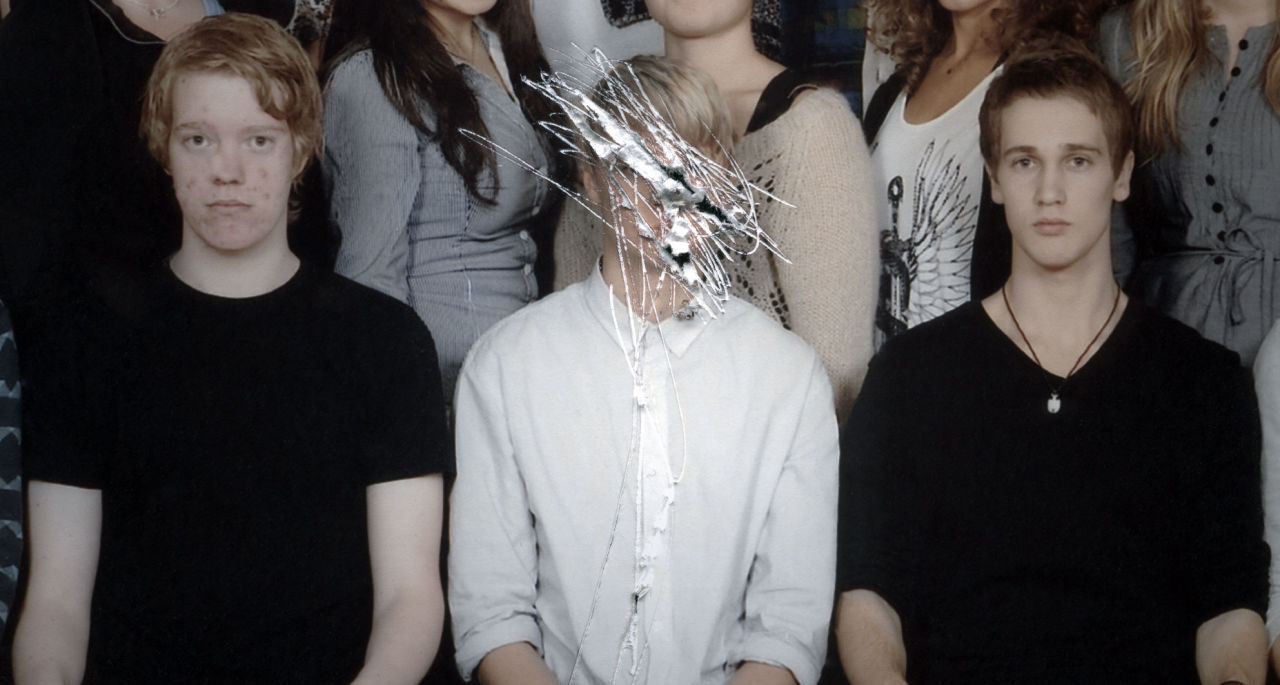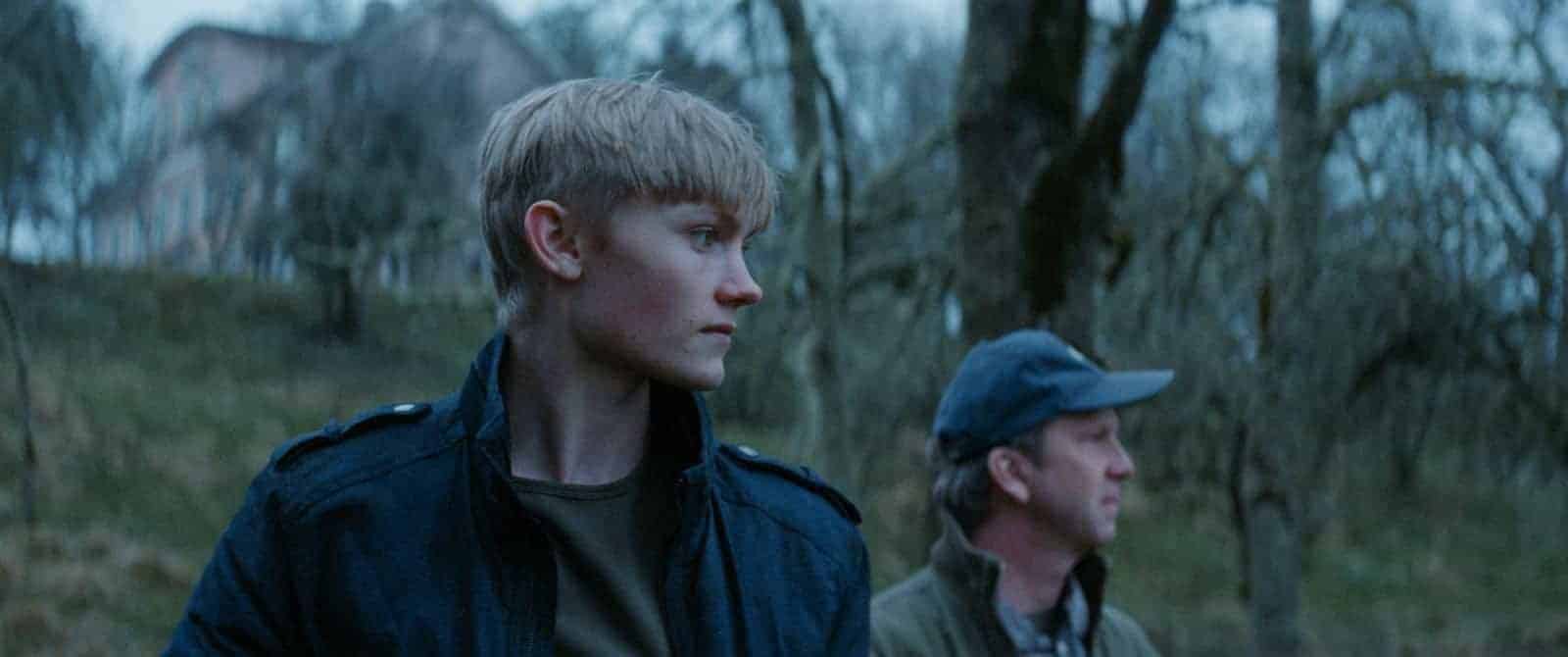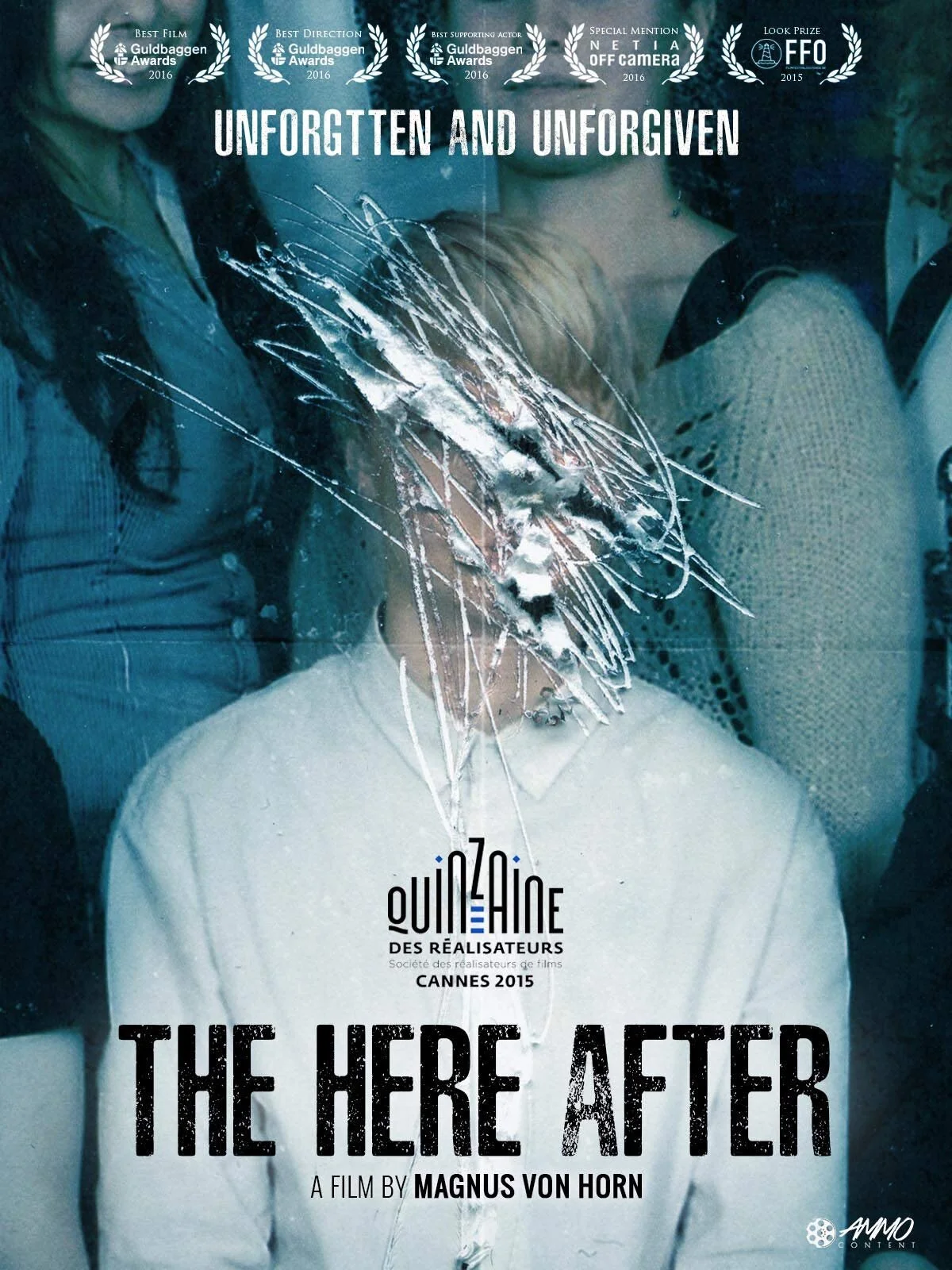
Magnus von Horn is a Swedish film director who is barely over forty years old and has only made three feature films so far. I've seen all three of them, the funny thing is that I watched them in reverse order, from most recent to oldest, starting with [_The Girl with the Needle_](https://hive.blog/hive-166847/@cristiancaicedo/the-girl-with-the-needle-2024-world-is-a-horrible-place-or-el-mundo-es-un-lugar-horrible), nominated for Best International Feature Film at the last Academy Awards; Then I saw [_Sweat_](https://hive.blog/hive-166847/@cristiancaicedo/sweat-2020-behind-the-social-media-courtain-or-tras-la-cortina-de-las-redes-sociales-eng-or-esp), a reflection on fame and exposure on social media; and last night I got to see his directorial debut, the 2015 film _**Efterskalv**_.
>Magnus von Horn es un director de cine sueco que apenas pasa de los cuarenta años y que sólo ha rodado tres largometrajes hasta ahora. Ya vi los tres, lo curioso es que los vi en orden inverso, desde el más reciente hasta el más antiguo, comenzando con [_La chica de la aguja_](https://hive.blog/hive-166847/@cristiancaicedo/the-girl-with-the-needle-2024-world-is-a-horrible-place-or-el-mundo-es-un-lugar-horrible), nominada como mejor película internacional en la última entrega de los premios oscar; luego vi [_Sweat_](https://hive.blog/hive-166847/@cristiancaicedo/sweat-2020-behind-the-social-media-courtain-or-tras-la-cortina-de-las-redes-sociales-eng-or-esp), reflexión sobre la fama y la exposición en redes sociales; y anoche pude ver su debut como director, la película _**Efterskalv**_ del 2015.
The film is known in English as _**The Here After**_, but I left the original name for the purpose of identifying this post because the translated title is very similar to two other films: _Hereafter_ by Clint Eastwood, starring Matt Damon; and _The Sweet Hereafter_, a Canadian drama about a horrific accident. Von Horn's film, written by the same director, tells the story of John, a teenager who, after serving time in a reformatory, returns to his father's house to reintegrate into society. Little by little, as the film progresses, some things are revealed to us, and we deduce others that are never entirely clear. John lives with his father and his little brother. Where is his mother? We don't know. Why did they put him in the reformatory? Later it becomes clear: How long was he there? Two years. Now, the issue isn't so much John's personal drama in returning to his home, his city, and his school, but rather the debate about whether or not it's a good idea for him to do so. Having been imprisoned for a violent and tragic incident, it's normal for the parents of the other kids at John's school to view him as a threat. He knows this, and that's why he behaves calmly, trying to go unnoticed, without attracting attention. However, no one has forgotten or forgiven what he's done, and so the one who poses a threat to the rest ends up, sooner rather than later, becoming the threatened one, the victim of some episodes of harassment and abuse.
>La cinta es conocida en inglés como _**The Here After**_ pero dejé el nombre original para la identificación de este post porque el título traducido se parece mucho al de otras dos películas: _Hereafter_ de Clint Eastwood con Matt Damon; y _The Sweet Hereafter_, una cinta canadiense dramática sobre un atroz accidente. En la película de von Horn, escrita por el mismo director, se cuenta la historia de John, un adolescente que tras cumplir una condena en un reformatorio, vuelve a la casa de su padre para reinsertarse en la sociedad. Poco a poco, conforme avanza la cinta se nos van revelando algunas cosas y vamos deduciendo otras que nunca se aclaran del todo. John vive con su padre y su hermano pequeño, ¿dónde está la mamá? no lo sabemos, ¿por qué lo metieron al reformatorio? Luego se aclara, ¿cuánto tiempo estuvo allí? dos años. Ahora bien, el tema no es tanto el drama personal de John en volver a su casa, su ciudad y su escuela, sino el debate de si es, o no, una buena idea que lo haga. Habiendo estado encarcelado por un episodio violento y trágico, es normal que los padres de los demás chicos de la escuela de John lo vean a él como una amenaza. Él lo sabe y por eso se comporta de forma tranquila, buscando pasar desapercibido, sin llamar la atención. Sin embargo, nadie ha olvidado ni perdonado lo que ha hecho y así el que constituye la amenaza para el resto termina, más temprano que tarde, convertido en el amenazado, en la víctima de diferentes episodios de acoso y de abuso dentro y fuera de su escuela.

Scene from the movie | Escena de la película
At its core, _**Efterskalv**_ is a dramatic thriller that also draws on elements of the school and bullying stories we've seen in films like the German film Die Welle or the Hong Kong film Shao nian de ni. But as you focus on one character or another and try to understand their motivations for what they do, the themes become darker, deeper, and much more uncomfortable.
>En esencia, _**Efterskalv**_ es un thriller dramático que utiliza también los elementos de las historias escolares y de acoso que hemos visto en cintas como la alemana _Die Welle_ o la hongkonesa _Shao nian de ni_. Pero a medida que uno se va enfocando en uno u otro personaje e intenta entender las motivaciones que puede tener cada uno para hacer lo que hace, los temas se vuelven más oscuros, más profundos y mucho más incómodos.
When a person commits a crime, we all agree that they must pay for it. Society trusts the agencies and leaves everything in the hands of justice. However, once this sentence is served, the offender does not return to where he started, not only because he must now bear the stigma of his criminal record—just as Jean Valjean did in _Les Misérables_—but also because society doesn't forgive him for his crime or doesn't believe the punishment was severe or long enough. It's logical that, in this situation, the ex-convict's reintegration into society represents a greater risk for him than for others, because any inconvenience will turn all eyes, full of suspicion, on him. It seems that whoever is guilty once is guilty forever. So, it's not just a matter of an agency, through a group of qualified professionals, determining that the individual is ready to return to society, but also of reviewing whether that society is ready to receive him. Now, and this is another controversial and interesting debate, does the individual who has committed such an atrocity deserve a second chance? A rapist, a murderer, a kidnapper, or a juvenile delinquent, once they've served their sentence, do they deserve to be forgiven by society, accepting their crime as a crime, and expecting them to become good men and women? Is an entire society capable of trusting that person and the justice system to that extent?
>Cuando una persona comete un crimen, todos estamos de acuerdo en que debe pagar por él. La sociedad confía en los organismos y deja todo en manos de la justicia. Si embargo, una vez cumplida esta condena, el delincuente no vuelve al punto inicial, no sólo porque ahora debe arrastrar el estigma de sus antecedentes - tal como le tocó a Jean Valjean en _Les Misérables_ - sino porque la sociedad no le perdona haber delinquido o no cree que el castigo haya sido suficientemente severo o suficientemente largo. Es lógico que, ante esta situación, la reinserción del ex presidiario en la sociedad, represente un riesgo mayor para él que para los demás, porque ante cualquier inconveniente todas las miradas, llenas de sospecha, se volverán hacia él. Pareciera ser que quien es culpable una vez es culpable siempre. Entonces, no se trata sólo de que un organismo, a través de un grupo de profesionales calificados, determine que el individuo está listo para volver a la sociedad, sino que hay que revisar también si esa sociedad está lista para recibirle. Ahora bien, y ese es otro debate polémico e interesante, ¿merece el individuo que ha cometido tal atrocidad, una segunda oportunidad? Un violador, asesino, secuestrador, o un delincuente juvenil, todos ellos, una vez que han cumplido su condena, ¿merecen que la sociedad los perdone, dando su crimen por pagado, y esperar que se conviertan ahora en hombres y mujeres de bien? ¿es toda una sociedad capaz de confiar en esa persona y en el sistema de justicia hasta ese punto?

Scene from the movie | Escena de la película
Of course, there are many factors to consider: the crime, the sentence, the person's age, the society in which the incident occurred, and many more. But do we as human beings have the inclination to at least give the benefit of the doubt to someone who has previously committed a wrongdoing? Are we capable of overcoming our prejudices? These are issues on which it's very difficult to reach a consensus, but I think it's well worth turning it over and giving it some thought. For that reason alone, this film deserves to be seen, disseminated, and celebrated as an uncomfortable work that forces us to think.
>Por supuesto que hay muchos factores que considerar: el crimen, la condena, la edad de la persona, la sociedad en la que ocurrió el hecho, y muchas más, pero ¿tenemos los seres humanos esa inclinación al menos a otorgar el beneficio de la duda a quien antes cometió una mala acción? ¿somos capaces de imponernos a nuestros prejuicios? Son temas en los que es muy difícil llegar a un consenso, pero creo que bien vale la pena darle la vuelta y pensarlo un poco. Sólo por eso, esta cinta merece ser vista, difundida y celebrada como una obra incómoda que nos obliga a pensar.
Yes, it's true that there are some details in the script that may not convince some, and the film sometimes lacks the sharpness that the director has demonstrated in his subsequent works. But it's also true that this is a great directorial debut, that the performances of the children are very good, and that the choice of Ulrik Munther as John was very appropriate because, with his facial features and youth, he is able to convey that mix of vulnerability and threat, of prey and predator, so necessary to make the story believable and memorable. Another highlight is the austere yet effective photography by Lukasz Zal, one of the most interesting cinematographers I've ever seen. Not only did he receive nominations and awards for his two collaborations with Pawel Pawlikowski (_Ida_ and _Cold War_), but he also participated in _I'm Thinking of Ending Things_, _Loving Vincent_, and _The Zone of Interest_. Lukasz is a very talented photographer, and that's evident in _**Efterskalv**_, the only film Magnus von Horn directed in his native Sweden. Despite being inspired by a real-life incident there, it's a global story that we can not only identify with but also reflect on, no matter where we live. Have any of you seen this story? I'll read your thoughts in the comments.
>Sí, es cierto que tiene algunos detalles en el guion que pueden no convencer a algunos y la cinta, a veces, carece de esa agudeza que ha demostrado el director en sus trabajos posteriores, pero también es cierto que se trata de un gran debut a nivel de dirección, que las actuaciones de los chicos son muy buenas, que la elección de Ulrik Munther como John fue muy acertada porque, con sus rasgos faciales y su juventud, es capaz de transmitir esa mezcla de vulnerabilidad y amenaza, de presa y depredador, tan necesaria para que la historia fuese verosímil y memorable. Otro punto destacado es esa fotografía austera y efectiva de Lukasz Zal, uno de los directores de fotografía más interesantes que he visto. No sólo obtuvo nominaciones y premios con sus dos colaboraciones con Pawel Pawlikowski (_Ida_ y _Cold War_) sino que además participó en _I'm Thinking of Ending Things_, _Loving Vincent_ y _The Zone of Interest_. Lukasz es un fotógrafo muy talentoso y eso se ve en _**Efterskalv**_, la única película que Magnus von Horn dirigió en su Suecia natal y que, a pesar de haber sido inspirada en un caso real ocurrido allí, es una historia de alcance global con la que podemos no solamente identificarnos sino también reflexionar sobre ella sin importar en donde vivamos, ¿alguno de ustedes ha visto esta historia? Los leo en los comentarios.
---
[3 x 1: My most recent visits to the cinema](https://hive.blog/hive-166847/@cristiancaicedo/3-x-1-my-most-recent-visits-to-the-cinema-or-mis-ultimas-visitas-al-cine) | 


###
---
#### Other posts that may interest you | Otros posts que pueden interesarte:
#
Reviewed by | Reseñado por @cristiancaicedo





